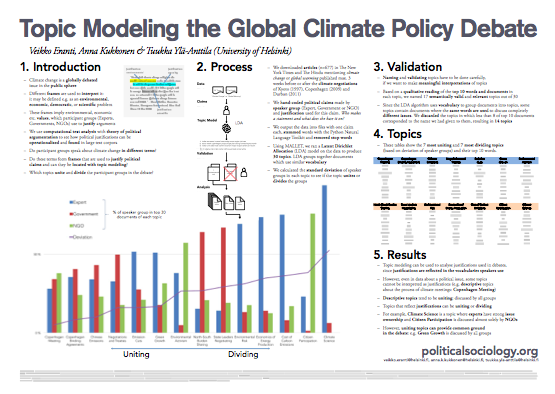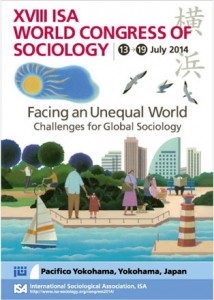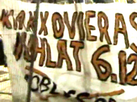In addition to the theses presented here earlier, members of HEPO published or edited several books during 2010. Here are brief introductions of them.
Networks in the Russian Market Economy from Palgrave Macmillan, by Markku Lonkila.
 “If Russia has become a market economy, how does it function on a grassroots level? In addition to market mechanisms, what kinds of social and moral principles are at work in the new Russian economy? Is the ‘Soviet legacy’ still present in post-Soviet business practices?
“If Russia has become a market economy, how does it function on a grassroots level? In addition to market mechanisms, what kinds of social and moral principles are at work in the new Russian economy? Is the ‘Soviet legacy’ still present in post-Soviet business practices?
This book searches for answers to these questions, by investigating the networking practices of the Russian software industry. It examines what kinds of resources are transmitted through the personal networks of Russian IT directors and managers, and which mechanisms govern this transmission. The volume opens a rarely available grassroots-level view into the business practices of the new Russian knowledge-based economy.”
Political Theory and Community Building in Post-Soviet Russia from Routledge, edited by Oleg Kharkhordin, Risto Alapuro.
“ This book revisits many aspects of current social science theories, such as actor-network theory and the French school of science and technology studies, to test how the theories apply in a specific situation, in this case after 1991 in the city of Cherepovets in Russia, home of Russia’s second biggest steel producer, Severstal. Using political philosophy to analyse the down-to-earth details of the real techno-scientific problems facing the world, the book examines the role of things – and urban infrastructure in particular – in political change. It considers how the city’s infrastructure, including housing, ICT networks, the provision of public utilities of all kinds, has been transformed in recent years; examines the roles of different actors including the municipal authorities, and explores citizens’ differing and sometimes contradictory images of their city. It includes a great deal of new thinking on how communities are built, how common action is initiated to provide public goods, and how the goods themselves – physical things – are a crucial driver of community action and community building, arguably more so than more abstract social and human forces.”
This book revisits many aspects of current social science theories, such as actor-network theory and the French school of science and technology studies, to test how the theories apply in a specific situation, in this case after 1991 in the city of Cherepovets in Russia, home of Russia’s second biggest steel producer, Severstal. Using political philosophy to analyse the down-to-earth details of the real techno-scientific problems facing the world, the book examines the role of things – and urban infrastructure in particular – in political change. It considers how the city’s infrastructure, including housing, ICT networks, the provision of public utilities of all kinds, has been transformed in recent years; examines the roles of different actors including the municipal authorities, and explores citizens’ differing and sometimes contradictory images of their city. It includes a great deal of new thinking on how communities are built, how common action is initiated to provide public goods, and how the goods themselves – physical things – are a crucial driver of community action and community building, arguably more so than more abstract social and human forces.”
Nordic Associations in a European Perspective from Nomos, edited by Risto Alapuro, Henrik Stenius.
“ Associations provide the most appropriate perspective to the Nordic conception of democracy. The book accepts this wisdom but argues that contrarily to conventional analyses, the specificity can only be shown if Nordic associations are analyzed both in a comparative and in an historically informed perspective.
Associations provide the most appropriate perspective to the Nordic conception of democracy. The book accepts this wisdom but argues that contrarily to conventional analyses, the specificity can only be shown if Nordic associations are analyzed both in a comparative and in an historically informed perspective.
An extensive historical introduction relates the development of the Nordic countries both to Western Europe and to each other. Then, in the following chapters, Denmark, Finland, Norway, or Sweden, or some of them are related to each other or to other European countries, and reflections are made on the relevance of the long historical time span.
An eloquent indication of the Nordic particularity is the importance of passive membership. It tells of the representation as the key quality of Nordic associations: it has been more important to belong, or to “be part of,” than to take part. But passive membership also poses the question of the viability of the Nordic association-based practices. Does the present “crisis of representation” signal the demise of the Nordic model, or can it serve as a springboard for new forms of vigilance?”






